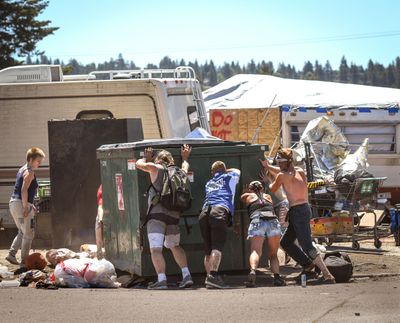Some examples of the regional approach to homelessness that’s being eyed in Spokane

Several cities have created regional authorities to take on homelessness.
Generally, these organizations pool funding and oversee a wide range of services including outreach, diversion and prevention, emergency shelter, rapid rehousing and permanent supportive housing, and services such as mental health and addiction treatment. Some are organized as nonprofits and some as special-purpose government districts.
The two with the clearest records of success are Houston and Atlanta, said Gavin Cooley, the former City Hall administrator who is helping to lead the conversation in Spokane.
Here are examples.
The Coalition for the Homeless in Houston and Harris County: This organization has coordinated the system for Texas’ Harris, Fort Bend and Montgomery counties since 2011. It is a nonprofit overseen by a board of directors. Its budget is built on the pooled resources of the region’s nonprofits and governments, and it has capitalized on attracting further funding based on its record of success.
The coalition says it attracts $37 in public funding for every dollar of private funding; since 2012, more than 25,000 formerly homeless people have been permanently housed and the region has decreased homelessness by 63%.
The Regional Commission on Homelessness in Atlanta: This agency combines the resources and efforts of regional government and social service entities, as a part of the United Way of Greater Atlanta. It works to reunite people with families, offers stabilization services to prevent people from falling into homelessness and provides emergency and permanent shelter. Last year, it moved 2,750 people from emergency shelter into permanent housing, according to its website.
King County Regional Homelessness Authority: This is among the more recent efforts at establishing a regional approach, and it has suffered delays and missteps after its formation in 2019. Some of the county’s cities have balked at turning over their funding and releasing control of services. In December, though, four other cities voted to join the authority along with Seattle, which officials called an important step. Leaders in Spokane have cited the King County experience as important in terms of identifying potential pitfalls.
The Regional Task Force on Homelessness in San Diego: This organization is operated by the Continuum of Care board for the city and county of San Diego. It provides data and communications, coordinates services among several partners, and also funds programs and brings together regional partners.